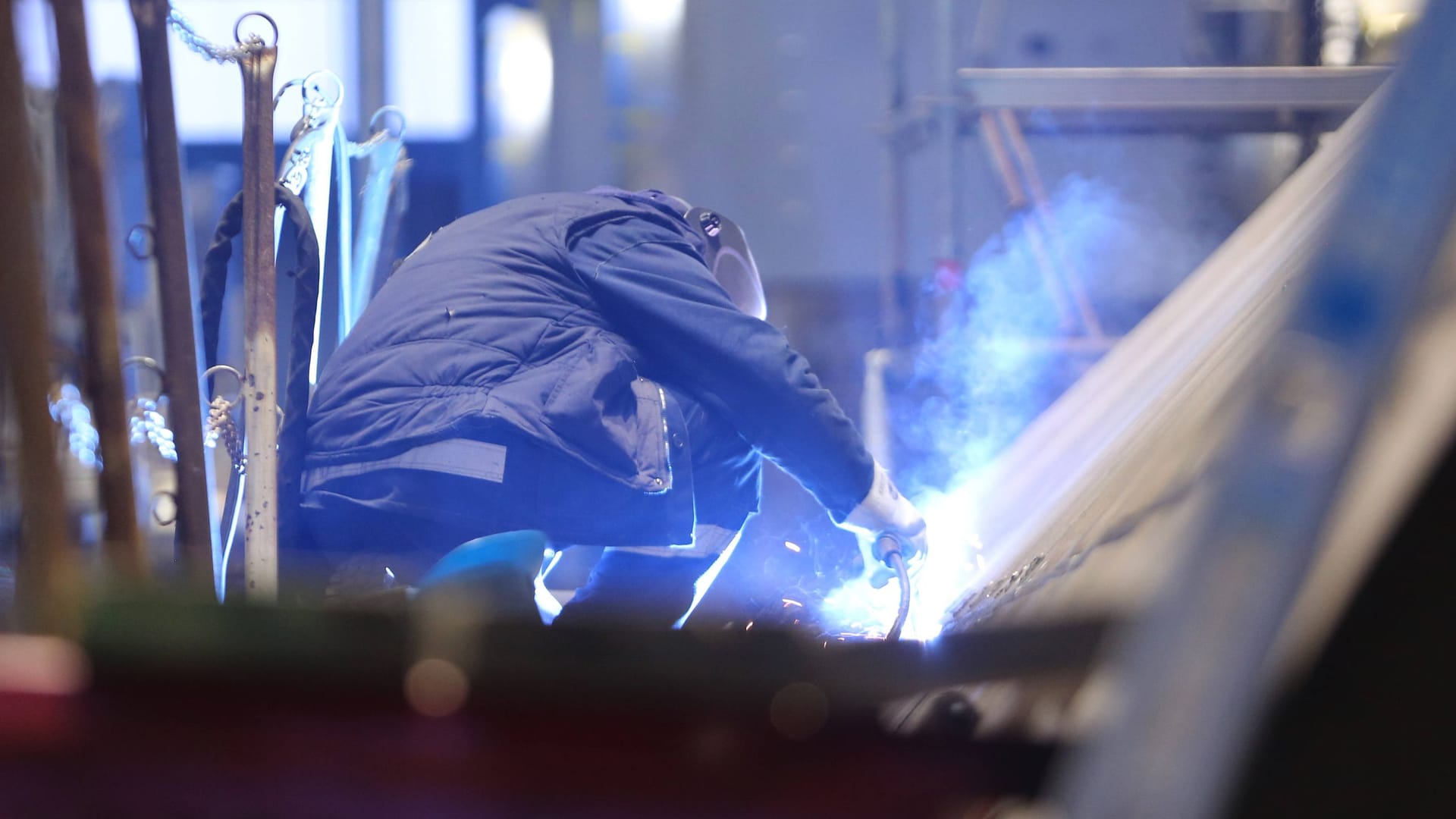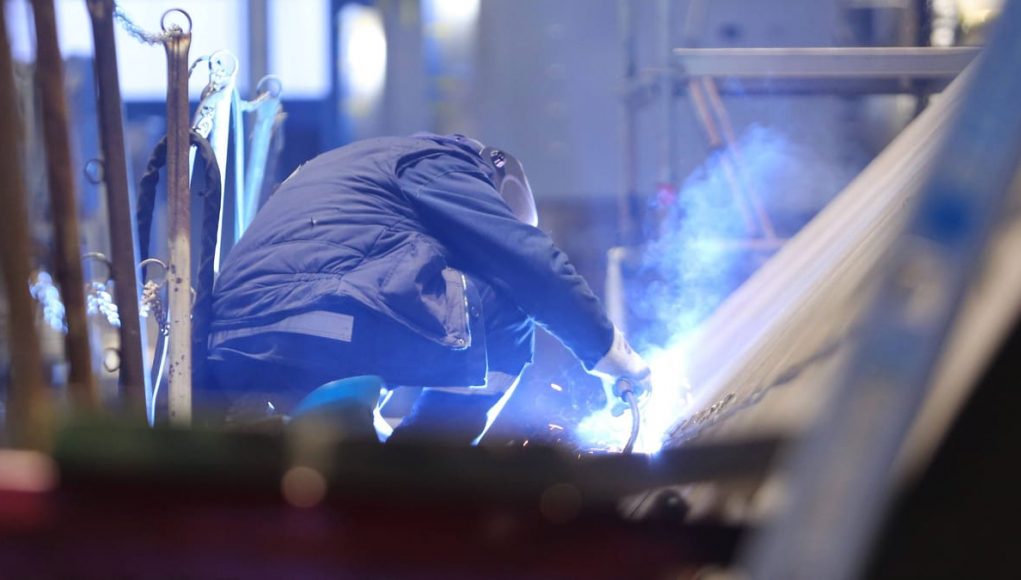“No trend reversal”
German industry records a surprising increase in production
January 9, 2025Reading time: 2 minutes

Things weren't easy for German industry last fall. A significant increase in production in November is all the more unexpected.
A ray of hope for the ailing German industry: production increased in November after two setbacks in a row. Production in manufacturing companies increased by 1.5 percent month-on-month, as the Federal Statistical Office (Destatis) announced on Thursday in Wiesbaden.
Economists had expected an average increase of one percent. In addition, the setback in October was less severe than previously thought: the Federal Office revised the decline to 0.4 percent – from minus 1.0 percent. Nevertheless, experts continue to see no trend reversal in this sector, which is particularly important for the German economy.
The positive development in November was evident in many areas. The Federal Office recorded a particularly strong increase in energy production with a seasonally and calendar adjusted increase of 5.6 percent month-on-month. There was also an above-average increase in the construction industry in November (plus 2.1 percent).
The Federal Office also reported particularly strong increases in so-called “other vehicle construction”. In the area that includes the production of aircraft, ships, trains and military vehicles, there was an increase of 11.4 percent.
The unexpectedly strong production data follows disappointing data on new industrial orders. Manufacturing orders fell 5.4 percent month-on-month in November due to a sharp decline in large orders, according to data released on Wednesday.
However, the federal government and economists do not see any comprehensive recovery. “Despite the more favorable development at the moment, there are still no signs of a turnaround in industrial production overall,” emphasized the Federal Ministry of Economics. “The ongoing geopolitical uncertainties, the recent decline in incoming orders and the recently clouded mood indicators do not currently mean that there will be any noticeable recovery in the coming months.”
Commerzbank chief economist Jörg Krämer also referred to the poor order situation. “The winter half-year remains difficult for the German economy,” said Krämer. And also because Donald Trump will move into the White House on January 20th. “The next few months with expected additional tariffs could still be very unpleasant for the German export industry,” warned the head of foreign trade at the German Chamber of Commerce and Industry (DIHK), Volker Treier.
The Kiel Institute for the World Economy (IfW Kiel) sees the increase in production as “not much more than a drop in the ocean.” There are still hardly any signs of a sustainable recovery, said analyst Nils Jannsen. He pointed out that industrial companies had recently significantly reduced their production capacities. Therefore, according to the IfW expert, “previous production levels are likely to remain out of reach for the foreseeable future.”































